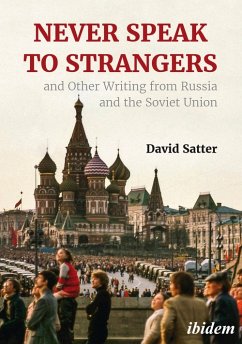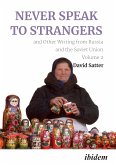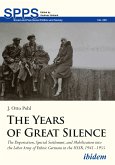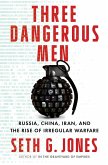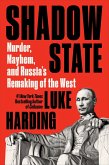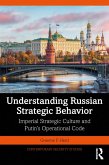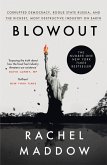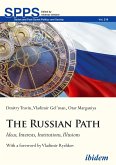David Satter arrived in the Soviet Union in June, 1976 as the correspondent of the Financial Times of London and entered a country that was a giant theater of the absurd. After 1982, he was banned from the Soviet Union but allowed back in 1990, and finally expelled in 2013 on the grounds that the secret police regarded his presence as "undesirable." From 1976 to the present, he saw four different Russias, which differed from each other radically while remaining essentially the same. From 1976 to 1982, the Soviet Union was at the height of its world power and its people were in thrall to an absurd ideology. With the advent of Gorbachev's perestroika, the Soviet population was liberated from the ideology and the state hurtled to its inevitable collapse. When independent Russia emerged from the wreckage, the failure to replace the missing ideology with genuine moral values led to Russia's complete criminalization. The articles in this unique collection are a chronicle of Russia from the day David Satter arrived in the Soviet Union until the present. Emigres from the states of the former Soviet Union often despair of their inability to convey the true character of their experiences to the West. Penetrating the veil of Russian mystification requires effort and the ability to understand that seeing is not always believing. The Russians have created an entire false world for our benefit. This collection reflects David Satter's 40-year attempt to see them as they are.
Dieser Download kann aus rechtlichen Gründen nur mit Rechnungsadresse in A, B, BG, CY, CZ, D, DK, EW, E, FIN, F, GR, HR, H, IRL, I, LT, L, LR, M, NL, PL, P, R, S, SLO, SK ausgeliefert werden.
"Many experts claim to have gotten Russia "right." Never Speak To Strangers openly lays out decades of Satter's writings, composed as events unfolded, allowing readers to evaluate whether the author did indeed get things right. Did he identify the major trends? Did he see the end coming? [...]My take on this massive collection of essays is that David Satter got things right. Taken together, his essays give us a much-needed framework for understanding Russia under Putin: where it came from, what it is like now, and-the most difficult question of all-where it is headed."- Paul R. Gregory, defining ideas, a Hoover Institution Journal"The truth the reader will glean from the pieces on dissidents is the truth that Satter spent much of his career emphasizing: namely, that Communism's ultimate failure was not economic or political, but spiritual. [...] If David Satter's career has shown anything, it is that even in times when it seems impossible, a true understanding of what is happening in Russia is within reach, provided one has the right moral framework and the courage to see reality as it is. If not for these qualities and the people who live by them, Russia would be destined to remain a riddle wrapped in a mystery inside an enigma."-Nat Brown, National Review, 29. October 2020
"The truth the reader will glean from the pieces on dissidents is the truth that Satter spent much of his career emphasizing: namely, that Communism's ultimate failure was not economic or political, but spiritual. [...] If David Satter's career has shown anything, it is that even in times when it seems impossible, a true understanding of what is happening in Russia is within reach, provided one has the right moral framework and the courage to see reality as it is. If not for these qualities and the people who live by them, Russia would be destined to remain a riddle wrapped in a mystery inside an enigma."-Nat Brown, National Review, 29. October 2020"Many experts claim to have gotten Russia "right." Never Speak To Strangers openly lays out decades of Satter's writings, composed as events unfolded, allowing readers to evaluate whether the author did indeed get things right. Did he identify the major trends? Did he see the end coming? [...]My take on this massive collection of essays is that David Satter got things right. Taken together, his essays give us a much-needed framework for understanding Russia under Putin: where it came from, what it is like now, and-the most difficult question of all-where it is headed."- Paul R. Gregory, defining ideas, a Hoover Institution Journal

